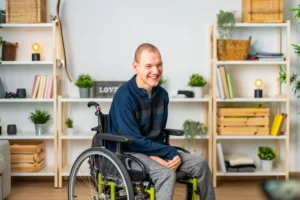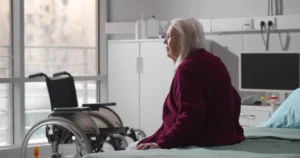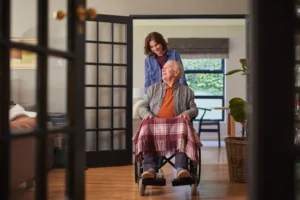Dementia is a condition that can deeply affect every part of a person’s life, as well as the lives of their friends, family, and other loved ones.
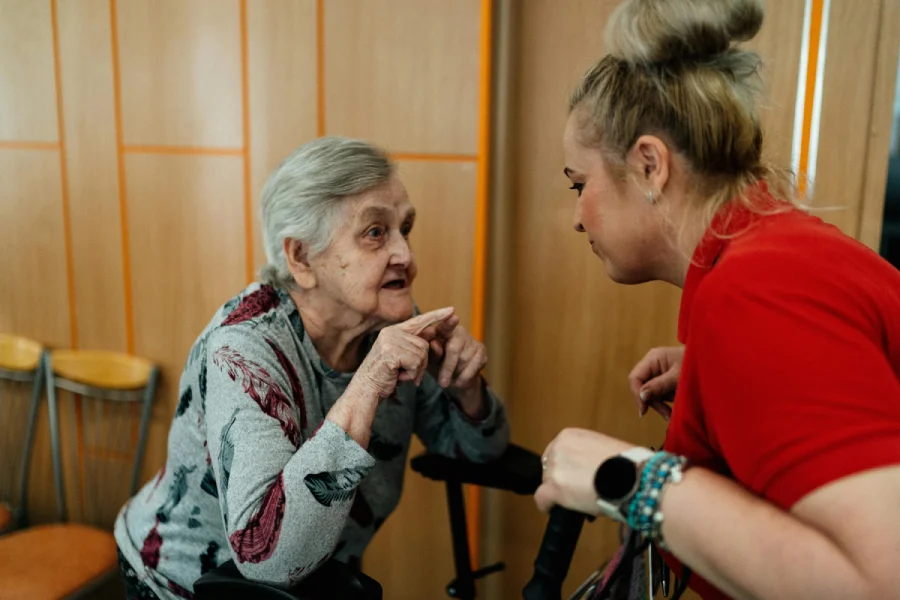
Rather than being a single disease, it refers to a group of symptoms that are often caused by conditions like Alzheimer’s. These symptoms can vary, but commonly include memory loss, confusion, and changes in behaviour or personality.
So, how can we help our loved ones feel safe and engaged? In this article, we’ll go over how you can make living at home supportive, safe and fulfilling. From tailored activities to practical tips and additional resources, we’re here to help you feel confident in your loved one’s care.
Does your loved one need extra support? At Aspire UK, we provide a range of home care services, including dementia care. If you would like to learn more, reach out to our friendly team today.

Tailored and meaningful activities for loved ones
As dementia affects your loved one’s cognitive abilities, it’s essential to keep them active, engaged, and thinking. This may help slow down cognitive decline, stimulate their brain, and strengthen connections.
It may also help them create new, meaningful memories with family and friends. Likewise, a sense of purpose during these activities can also help improve their mood, as well as reduce stress and anxiety.
1. The joy of baking
Baking is an easy activity that most people can do with their loved ones. It requires both some thought to engage with and uses simple repetitive tasks.
Likewise, there may be less risk with baking than with other forms of cooking, as most recipes do not require an open flame. Depending on your loved one’s experiences and preferences, this may help spark familiar memories or even build new skills.
2. Reconnecting through music
Music has also been known to help people living with dementia. It may help reduce blood pressure, relieve muscle tension, and even manage pain.
Not only might music help your loved one relax, but it may also boost their mood and help them reconnect with past memories. This is especially common when songs they know and love are played.
Likewise, appreciating music can help them stay in the moment. This can help them engage both physically, through dance, and emotionally.
3. Reminiscence therapy
Reminiscence therapy is a more focused approach to recalling memories. Often, it involves going through physical items (such as photos, newspapers, and personal effects) that may trigger a memory.
A therapist or family member may then engage your loved one in conversation to help them recall past events. It may make it easier for your loved one to communicate, process emotions, and connect.
Likewise, learning about your loved one’s past may help you understand them and strengthen your connection with them.

How to prioritise safety
Ensuring your home is safe is crucial for loved ones living with dementia. They may get lost, confused, or struggle with mobility. Here, we’ll outline different ways to improve the safety of your home.
1. Preventing wandering
Wandering is a common habit of those with dementia. They may think they are somewhere else, or that they need to reach a different place. This could put them at risk if they leave the home unsupervised.
To prevent wandering, try installing locks above or below their line of sight. This may help keep them secure in your home with less risk of causing distress.
You might also consider using locks or alarms on windows if that is a concern as well.
It might be difficult to monitor your loved one at all times. Consider reaching out to your neighbours and letting them know that wandering is a risk. They may be willing to lend a hand and help your loved one stay safe.
2. Securing homes
Your next step should be securing your home and ensuring it is a safe space for your loved one. Try to look over your home and assess any hazards that may affect them.
To start, remove tripping hazards like rugs or low furniture. Likewise, obstructive furniture may make it harder for your loved one to move around, so rearranging it may be necessary.
Conduct checks to ensure appliances and alarms are in working order. Ensure that walkways and rooms are well lit to help them feel safe and confident.
Another critical step is to secure furniture. If your loved one bumps into a bookcase, it could potentially fall on them. Ensure any tall pieces of furniture are locked into place with bolts or ties.
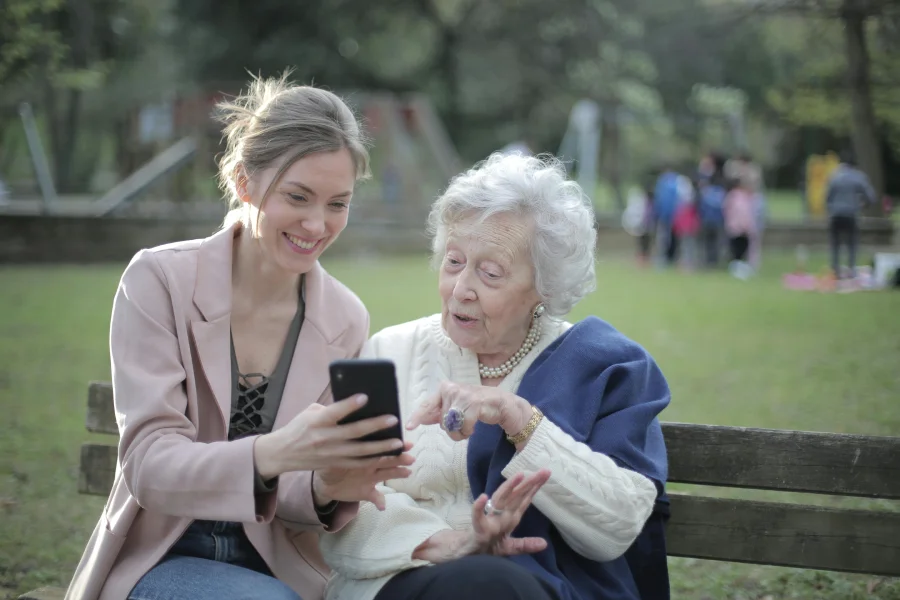
Do you need some extra support?
Several organisations provide a variety of resources, helping you and your loved one feel prepared. Here, we’ll go over a few and what they offer:
Dementia UK
Dementia UK has a ton of information about dementia and caring for a loved one on their site, from understanding it to financial advice and more.
They also provide valuable resources, from leaflets and book recommendations to videos and podcasts. All of these are available for free.
Alzheimer’s Society
The Alzheimer’s Society is also similar, in that it offers a wide variety of information on Alzheimer’s and dementia. Along with this, they offer useful resources to find support near you and tips for supporting your loved one.
They also have extensive resources providing legal and financial guidance. Likewise, they offer valuable tips and advice on how carers should look after themselves.
The Centre for Ageing Better
While not specific to dementia, the Centre for Ageing Better is dedicated to improving the lives of older adults. It offers a variety of resources on several topics such as improving home, work, and movement.
Many resources also delve into how to keep a home safe and how to fund home improvements.
No matter your concern, there are several places you can find support.
Thoughtful home care for dementia
Does your loved one need extra support at home? At Aspire UK, we’re here for local Leicestershire families with compassionate home care services.
Whether your loved one is living with dementia or facing other complex needs, our fully trained care workers provide thoughtful, personalised support. We’re here to help your loved one feel safe, comfortable, and cared for in the place they know best.
Reach out to our friendly team today. We’re always here to lend a hand.


